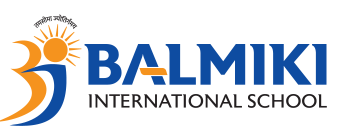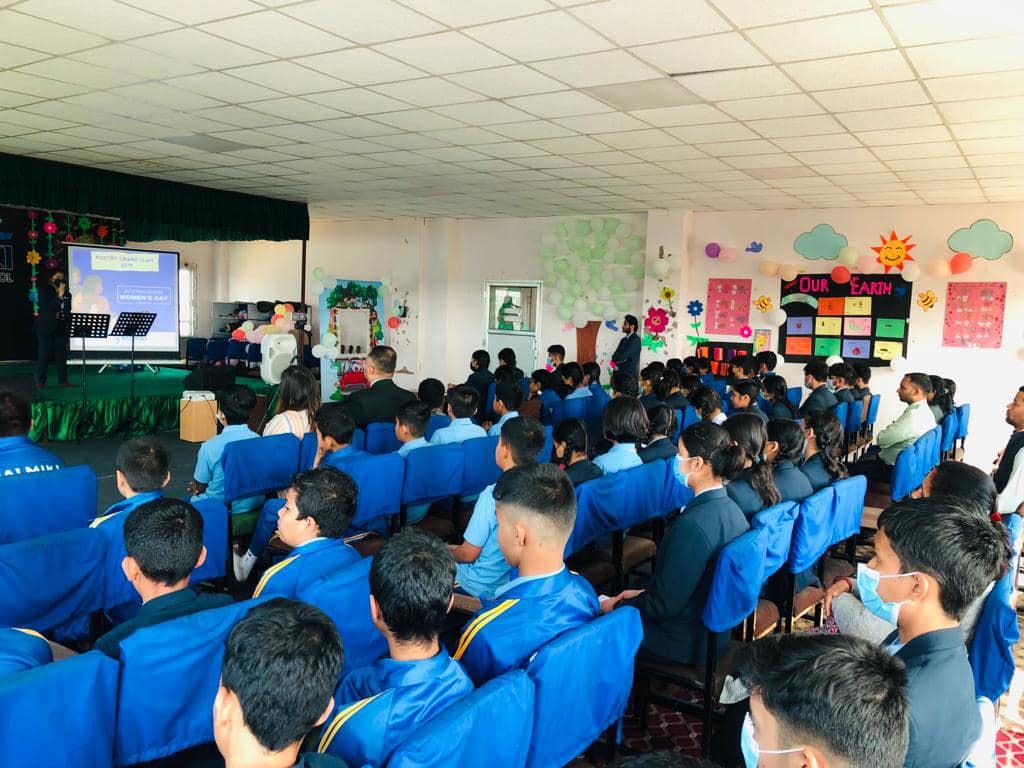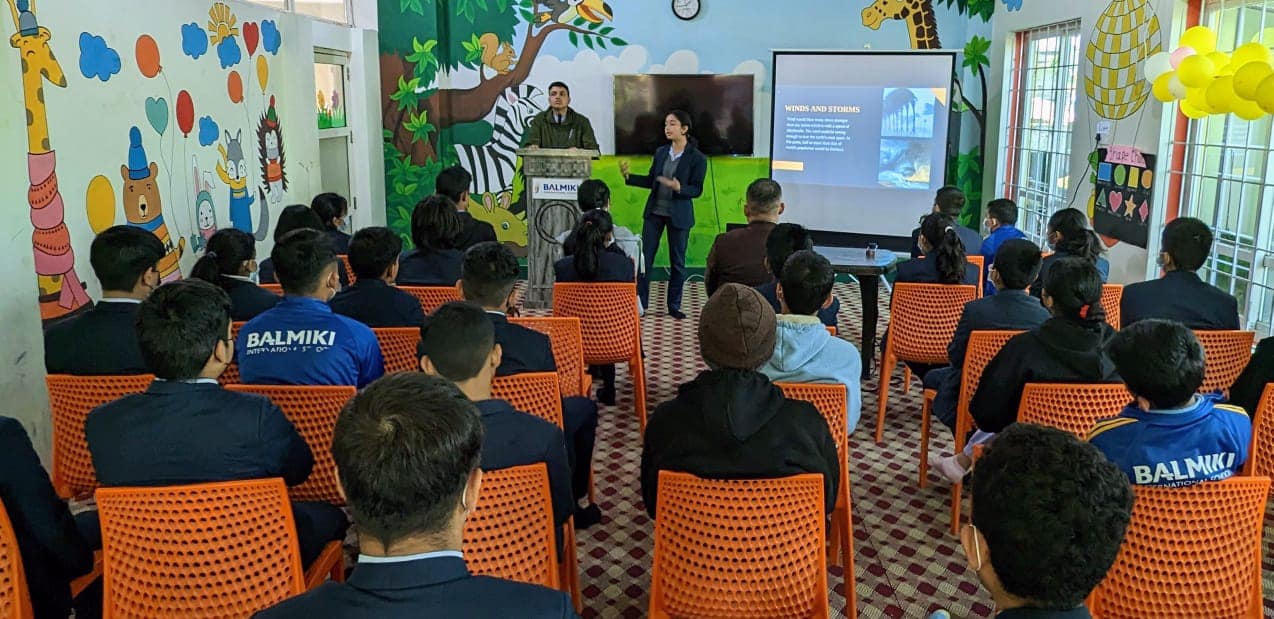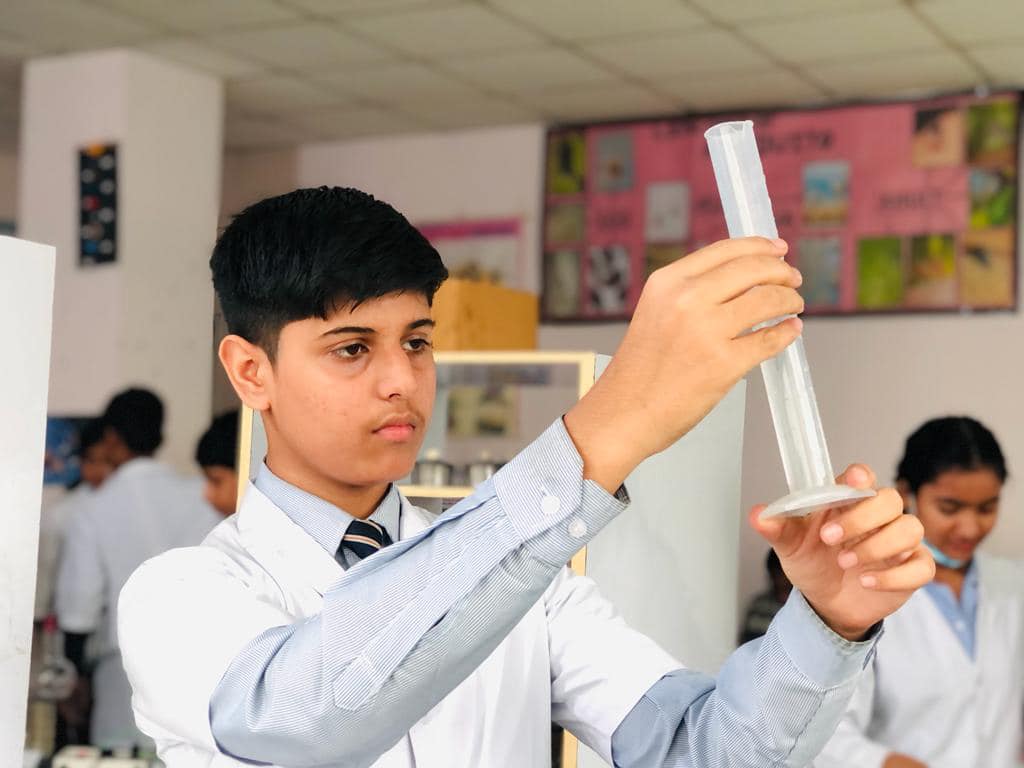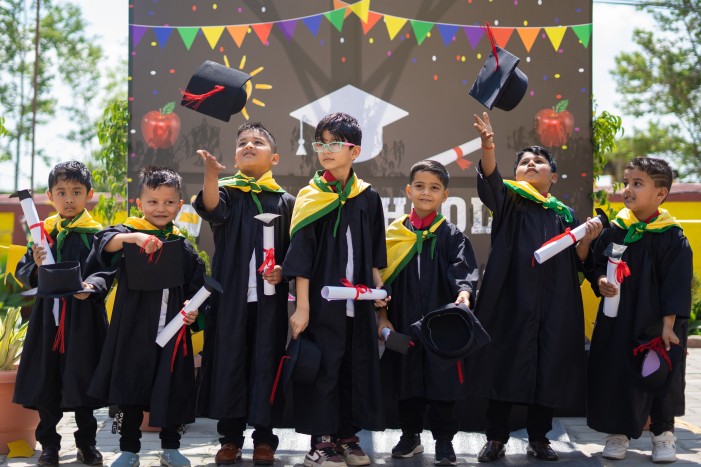
25+
Our experienced team
Balmiki International School
Enlightenment through Education
Balmiki International School is established with the vision of providing quality education using modern pedagogies in the state-of-the art infrastructure facilities. It has modern academic building with spacious air-conditioned classrooms, laboratories, activity hall, administrative building, multi-purpose activity hall, dining hall equipped with modern kitchen facilities and many more.
Mission: Balmiki’s vision is to provide student-centered educational program delivering excellence in education.
Vision: Balmiki strives to provide holistic education to prepare and motivate our students for rapidly changing word by instilling a global perspective and a respect for core values and traditions.
- We provide value-based education.
- State-of-the art infrastructure
- Climate controlled environment
- We put our children first
- We prepare our children for the world.
- We embrace new technology
- We have a strong literacy program
OUR PHILOSOPHY
Balmiki International School is established with the vision of providing quality education using progressive pedagogies in state-of-the-art infrastructure facilities. Balmiki is committed to the holistic development of learners through enjoyable academic, personal and international learning that prepares them for opportunities and challenges now and in the future. One of the core values of Balmiki “ROOTS & WINGS” embeds learners to be global citizens retaining their Nepali roots and values.
We encourage learners to think for themselves by pursuing their intellectual curiosity and creativity. We guide learners to develop ideas and seek creative solutions to problems. Our committed teaching faculties nurture critical thinking by encouraging students to work, ask questions, analyze, and draw logical conclusions in a happy atmosphere.
OUR CURRICULUM
At Balmiki, we emphasize Student Centric Learning by stimulating individual students in constructing a concrete comprehension between new meaning and prior experiences and our teaching faculties play an important role to transfer the shared experiences into real-world learning.
We apply the Multiple Intelligence theory by Dr. Howard Gardener. With this, we seek to bring out the fullest potentiality of our learners. Dr. Gardner sought to address the broader range of human potential in students through Multiple Intelligence Theory. To orient the students by identifying their strengths and to accommodate them successfully, we strongly believe to develop different Multiple Intelligences in a learner consisting of Visual/Spatial, Verbal/Linguistic, Mathematical/Logical, Bodily/ Kinesthetic, Musical/ Rhythmic, Interpersonal, and Naturalist.
Abraham Maslow’s “Hierarchy of Needs” drives our learners to realize their true potential and achieve their ‘ideal self’. We apply Maslow’s theory in the form of HIDDEN CURRICULUM so that our learners realize their true potential, referred to as Self Actualization, the highest level of human motivation.
ELEMENTARY SCHOOL
Learners of Grade I – VIII are in Elementary or Basic Level. Balmiki International School is proud to introduce Fieldwork Education, UK’S IPC curriculum in Grades I –V. The Balmiki International School is the only school in Sudur Paschim to introduce IPC, a world-class curriculum used across 90 countries all over the world.
The International Primary Curriculum (IPC) is committed to the holistic development of and international learning that prepares them for opportunities and challenges now and in the future. The IPC has a comprehensive set of Learning Goals to encourage the development learners through enjoyable academic, personal, of and internationally-minded competent learners. They define what children are expected to know, what they should be able to do and the understanding that they will develop through learning. The learning goals as part of the International Primary Curriculum come in three parts – subject learning goals, personal learning goals, and international learning goals. These all focus on developing children’s knowledge, skills, and understanding. Subject Learning Goals cover the knowledge, skills, and understanding that children should have in each subject area like Language Arts, Mathematics, Science, ICT and Computing, Art and Society, etc. globally
The International Curriculum is unique in defining move towards developing more sophisticated national, international, global, and intercultural perspectives. It aims to develop knowledge and understanding beyond their nationality and to create an understanding of the independence and interdependence of people, cultures and countries. Personal Learning Goals underpin the individual qualities and learning dispositions that citizens of the future will need to thrive in a demanding and ever-changing global society. It is to create a sense of morality and good communication skills in students. From grade VI onwards, students move about the building to subject-specific classrooms and laboratories. Core subject teachers across the grades make a special effort to collaborate with teachers of other subjects and departments, such as physical education, art, music, dance, and drama for a more integrated and holistic learning experience. International Learning Goals that help learners
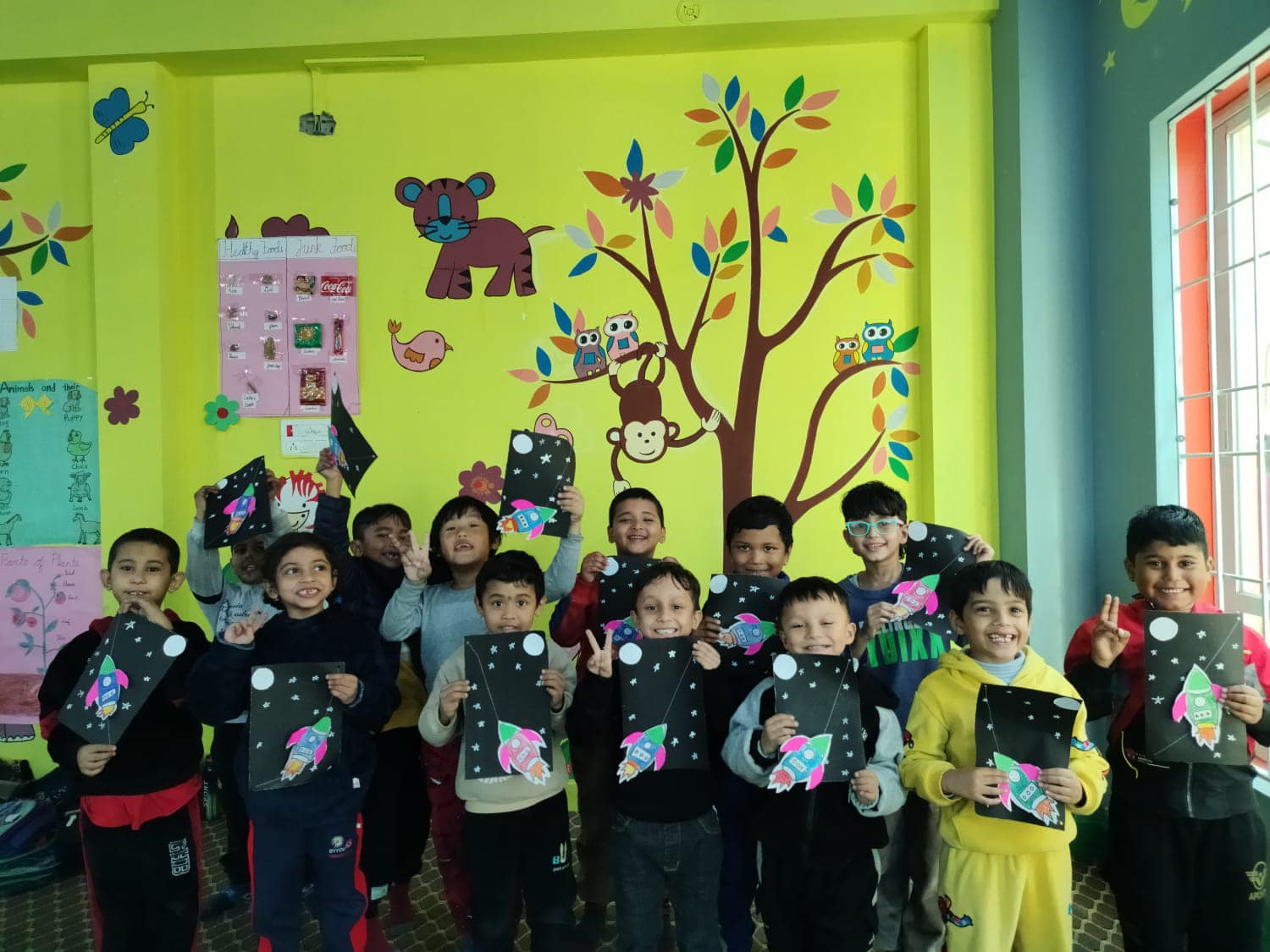
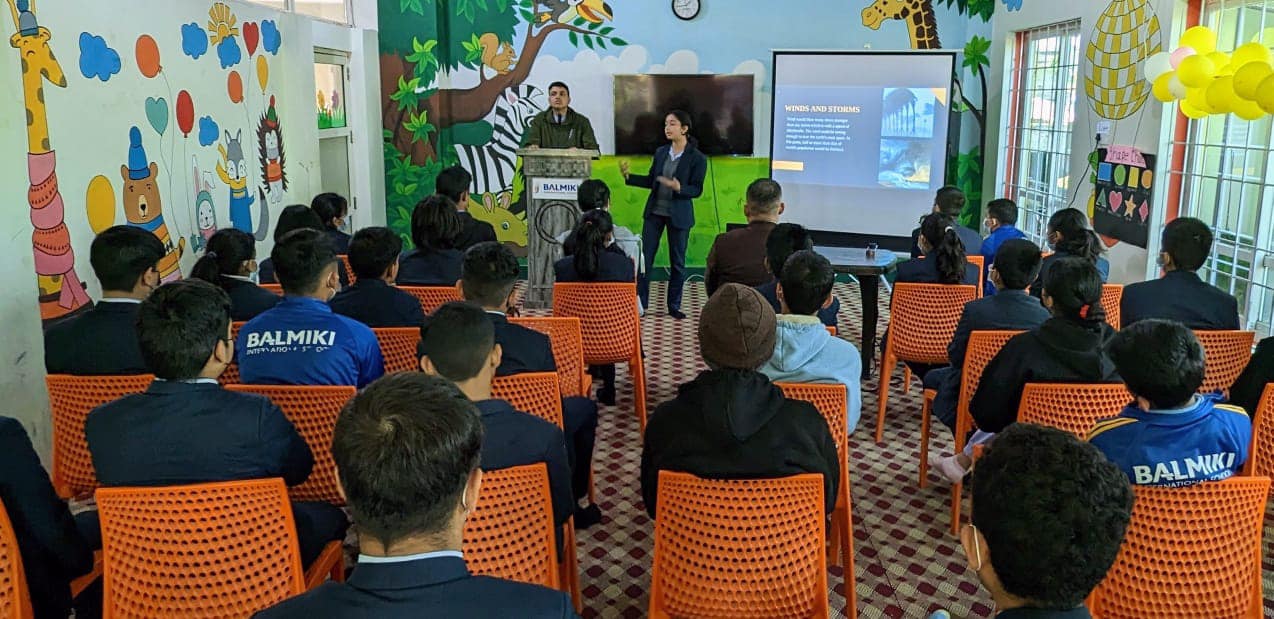
25+
Our experienced team

OUR PROGRAMMES BALMIKI KINDERGARTEN:
Balmiki Kindergarten is established keeping the following goals in the forefront
SENIOR SCHOOL:
The senior school consists of Grade IX – X. The progressive pedagogy helps our learners to experience a holistic learning experience. We strictly follow the guidelines of The National Curriculum Framework, 2076 set by Curriculum Development Centre, Bhaktapur.
The expected competencies to be developed in secondary level students (Grades IX- X) are as follows:
- Carrying the responsibility of conscious citizens for the promotion of nation and nationality by adopting human values, beliefs, and democratic culture.
- Fulfill the role of building a civilized,cultured, and egalitarian society by embracing diversity, harmony, and coexistence by getting acquainted with the national and international environment.
- Use appropriate and relevant language skills with confidence in daily activities.
- Effective learning, creative and analytical thinking, and exchange of ideas through social interaction and communication
- Use of mathematical concepts, principles, and logical skills in solving mathematical problems
- Social Relational Behavior Using Life Skills Recognizing the Identity of Life and Behavior
- Active participation in environment protection and promotion and population management with health awareness
- Analysis of natural and social phenomena, their impact perception, and demonstration of positive behavior
- Acquire the necessary procedural skills to carry out scientific research and application of modern technologies in daily life
- Preparing for a working world with respect to labor.
- Development and use of technical knowledge, skills, trends, and professional and managerial abilities
